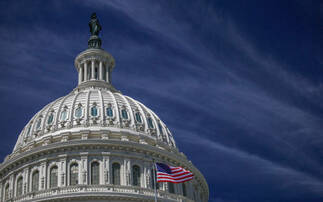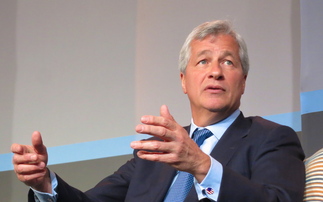In the last of a special three-part Big Question, fund managers give their views on what Donald Trump's presidency may mean for markets and the global economy.
Ian Marsden, investment manager at Redmayne-Bentley
Volatility, volatility, volatility
Investors quickly reached the conclusion that President Trump will press ahead with his more business-friendly campaign pledges, such as cutting corporation tax and increasing infrastructure spending, along with his broader goal of doubling the US's rate of GDP growth from its current level.
Since his election victory, US stock markets have set a number of all-time highs.
At this stage, it is difficult to say whether Trump will abandon any of his pledges, or how co-operative Congress will be. But it seems likely that at least some of his economic policies will meet with resistance from Republican deficit hawks.
Meanwhile, Trump has already shown a willingness to publicly criticise sectors or companies which he considers to be damaging to the US economy.
A recent example was the pharmaceutical industry, which he described as "getting away with murder" regarding drug prices in the US. The sector was promptly sold off by investors.
In short, there is the potential for political uncertainty in the US to increase volatility in the financial markets over the coming months, which may currently be underappreciated by investors.
Anthony McDonald, senior investment analyst at City Financial
Equity weakness a big opportunity
In the medium term, we believe that investor optimism will be justified. We think that markets have reached a defining moment that marks the end of the 35-year bull market in bonds.
Soaring US business confidence surveys offer early support for our view that significant and extensive policy changes, which have been magnified by Trump's election victory, will allow the global economy to break the deflationary cycle and move into recovery.
Of course, there are risks. In the short term, sentiment is overstretched and we cannot be certain whether Trump will be willing or able to successfully implement his policies.
Equities are vulnerable to a first-quarter correction, as markets confront the less positive aspects of Trump's agenda. These include protectionist trade policy and the likely delays in reaping the direct benefits of tax and infrastructure stimulus.
We see equity weakness as a buying opportunity, based on our view that Trump's approach will mark a sea change that justifies investors' increased optimism on growth and inflation.
Jeremy Richardson, senior portfolio manager - global equity at RBC Global Asset Management
Selective investing
The excitement caused by Trump's victory has masked rotation that has left overall indices trending in a narrow band (in USD) and volatility notably low. Volatility rarely stays low for long, and guessing the market's direction when it inevitably rises again is notoriously hard.
How many of us would have predicted that the market would shrug off China's crash, Brexit and Trump to finish 2016 higher than it began?
Arguably, the bigger issue is not whether we get more of a Trump bump, but whether expectations of rising inflation end up oiling the wheels of commerce or lead to stagflation. Bond and equity markets are trying to decide.
In our view, the sensible approach to this quandary is to be selective when investing, favouring companies with differentiated business models that have pricing power, attractive end markets, and the potential to take market share. Such companies should be able to deliver attractive returns despite the macro backdrop.
Sandy Sanders, manager of US Large Cap Core Equity Fund at Manulife Asset Management
Concerns over full valuations
This was a game changing presidential election. We are now in a wholly positive, pro-growth environment - that is excellent news for the asset class.
With the promise of reduced regulation, repatriation of between US$2.4trillion - US$3trillion of capital and lower taxes (for corporations and consumers), we have the strong possibility of a multi-year investment flurry that could motor significant gross domestic product growth. That's a much more positive environment for large cap stocks.
Some of these green shoots emerged before the election. In October we not only saw 2.8% year-on-year growth in wage inflation - the best numbers since 2009 - but also confirmation of 1.3 million housing starts for the year. That latter metric is some way short of the 1.5 million long run average so we believe there is plenty of room for yet more growth.
Even with the recent market rally and concerns over full valuations, we are still finding adequate discounts to fair value across the asset class. Additionally, several of the pro-growth agenda items proposed by the incoming administration could result in future earnings estimates being too low, especially for financials and industrials.













